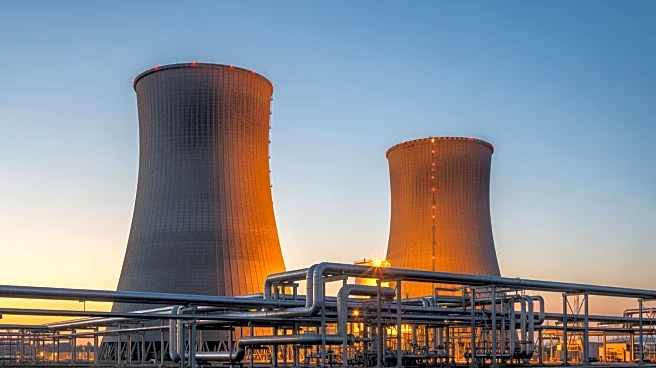What's Happening?
The United States and Saudi Arabia have signed a historic civilian nuclear energy deal worth billions of dollars. This agreement was confirmed during Saudi Crown Prince Mohammed bin Salman's visit to the
White House, marking his first visit to Washington, D.C., in seven years. The deal, hailed by U.S. Energy Secretary Chris Wright, establishes a Joint Declaration on the Completion of Negotiations on Civil Nuclear Cooperation. It designates U.S. companies as Riyadh's preferred civil nuclear partners and commits both sides to strict nonproliferation standards.
Why It's Important?
This nuclear energy deal is crucial as it strengthens the U.S.'s position in the Middle East, counterbalancing influences from Iran, Russia, and China. It also reduces U.S. dependence on Russian-enriched uranium. The agreement supports Saudi Arabia's Vision 2030 by diversifying its energy mix and reducing reliance on fossil fuels. The deal is part of broader U.S. efforts to deepen civil nuclear ties with Saudi Arabia, potentially shifting regional power dynamics and enhancing U.S. influence.
What's Next?
The agreement marks the first step in a long-term partnership between the U.S. and Saudi Arabia in civilian nuclear energy. Saudi Arabia's launch of a civilian nuclear program could alter the regional balance of power. The deal may lead to further negotiations and collaborations in nuclear technology and energy infrastructure. Both nations will continue to work on implementing the agreement's provisions, including nonproliferation standards and bilateral safeguard agreements.








